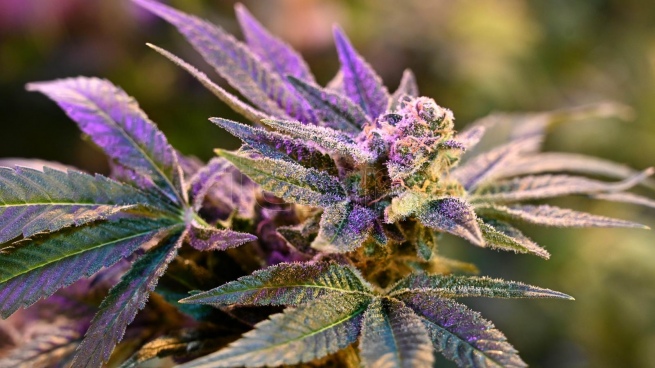A group of Argentine researchers is working on an innovative computer tool to assist medical Cannabis genetics developments in the country and the regionwhich makes the development process of new varieties more efficient, in addition to allowing potentially valuable specimens to be selected at the molecular level, which saves time and inputs associated with the implementation of a cultivation plan.
“As a result of this development, it will be possible to generate knowledge about the genes to be selected or modified to obtain specific strains that adapt to current regulations and generate plants that produce compounds of interest or novel profiles in a stable manner”, Tomás De Lorenzi, engineer and project manager, representative of the Canndico SRL company, explained to Télam-Confiar.
This project has two legs: one in research, with which the researchers consolidated a database with all cannabis genomes published internationallyand another in cultivation, for which they have already received ministerial approval to start the indoor/outdoor cultivation of medicinal cannabis.
In addition, it introduces as a distinctive aspect the molecular studies and data science approach for the design and selection of new varieties (molecular breeding), having as a key element the bioinformatics tools.
This technology, exemplified the specialist, allows to increase the productivity of the crop, achieve genetic consistency and stability and develop varieties resistant to both pathogens and different climatic conditions.
“It is important to highlight the impulse that gave us the Sadosky Foundationthrough the announcement “Innovative Solutions for Software Challenges”which together with Ministry of Science, Technology and Innovation financed innovation projects between software companies and research groups from all over the country”.
The call disburses 100 million pesos for the development of projects in strategic areas such as health, satellite industry, energy transition, bioeconomy and productivity in Software and Information Services (SSI) companies, assisted by research teams from all over the country, among which this initiative was one of the 16 selected.
? We continue to present the projects selected in the call #InnovativeSolutionsChallengesSoftware.
These initiatives will be developed over a period of 12 months, and the teams will receive continuous support from the Foundation. pic.twitter.com/C9p3NMqR5U
— Sadosky Foundation (@funsadosky) August 8, 2022
This project will “build a comprehensive database composed of genomic, transcriptomic, proteomic, metabolomic, chemical and phenotypic data from the Cannabis crop, uniting our own data with those currently available”, De Lorenzi expanded.
In this way, the research team seeks to develop a exploration and analysis softwareapplying data science tools for the generation of predictive genomics models.
“The bioinformatics tools that we will develop with this project focus their efforts on making the process of developing new varieties of medicinal Cannabis more efficient, and by focusing the analysis on known regions of the genome allows to select potentially valuable specimens at the molecular level, saving time and inputs associated with the implementation of a cultivation plan”.
How and in what context the project was born
The idea, commented De Lorenzi, arose in 2020 from the great global changes that have been taking place around the crop and the “conviction that it could be an immense opportunity for our country.”
In the last five years, the global and national regulatory framework on medicinal Cannabis has undergone profound transformations and “all have been directed towards recognizing that it is a cultivation of strategic interest and that its applications at a medicinal and industrial level can offer tangible benefits at a social and economic level”, highlighted the specialist.
In 2020, the UN Commission on Narcotic Drugs removed Cannabis from its list of risk narcoticsfollowing the recommendations of the World Health Organization (WHO) on medical and therapeutic benefits of the derivatives of this plant.
Nine American countries already contemplate its medicinal useand they are joined by four additional countries that also allow responsible adult use.
On the local scene, the representative of the project explained that “In Argentina, the sanction of Law 27,350 in 2017 gave the initial kick for the emergence of the industryalthough its regulations were very restrictive and did not give way to an immediate take-off”.
“It would be in November 2020 that a new regulatory decree would favor the institutional conditions to improve the interaction between the scientific-technological complex and the productive sector”, he stressed.
Currently, ten provincial public companies and more than 150 private companies that make up the Argentine Chamber of Cannabis (Argencann) They are already dedicated exclusively to the subject and more than 80 municipalities promoted legislation on the subject, the specialist completed.

Project participants
canonical is a young enterprise with a technical team that is directly integrated by five professionals from the local scientific-technological complex with experience in plant molecular biology, genomics, bioinformatics, crop engineering and innovation management.
In addition, he specified, “it is planned that a work team of six professionals from the National Institute of Agricultural Technology (INTA) join the project at the Oliveros headquarters. and that a group of advanced students of the Higher Polytechnic Institute of the National University of Rosario (UNR) carry out professional practices”.
“Our company interacts with public agencies such as the National Ministry of Health, the National Ministry of Science, Technology and Innovation, INTA, the National Seed Institute (INASE) and the Santa Fe Science, Technology and Innovation Agency ( Asactei). At an academic level with the UNR and the University of Bonn”, listed the representative of the project.
While the Sadosky Foundation made “highly qualified scientific teams” available, he added.
what stage is it in
The project has two work plans, one for research and the other for cultivation: “In the research plan we consolidate a database with all cannabis genomes published internationally and we have prepared a document on the state of the art in the discipline, which we will soon share with the community following our philosophy of open innovation”, De Lorenzi remarked.
The team is also programming Genetic sequencing services for local cannabis varieties to enrich the database, which they are coordinating “with scientific teams from INTA and Conicet”, while the studies will be carried out in laboratories of the Genomics Unit of the INTA Castelar Biotechnological Research Institute.
“In terms of production, our company obtained in August of this year the approval of the Ministry of Health of the Nation to start andl indoor/outdoor cultivation of medicinal cannabis on the premises of INTA Oliveros (province of Santa Fe)”.
will be two greenhouses of 600 m2 total plus other support facilities: “There we will cultivate local and foreign varieties of medicinal cannabis and with the data collected we will enrich our central base.”
The specialist remarked that “genetic knowledge is essential for the development of the Cannabis industry in Argentina due to its great agro-export potential”.
“In Argentina, the development of this industry can generate some 10,000 new jobs by 2025, 500 million dollars in annual sales to the domestic market and an additional 50 million dollars a year in exports, according to the Ministry of Productive Development of the Nation,” concluded.


















